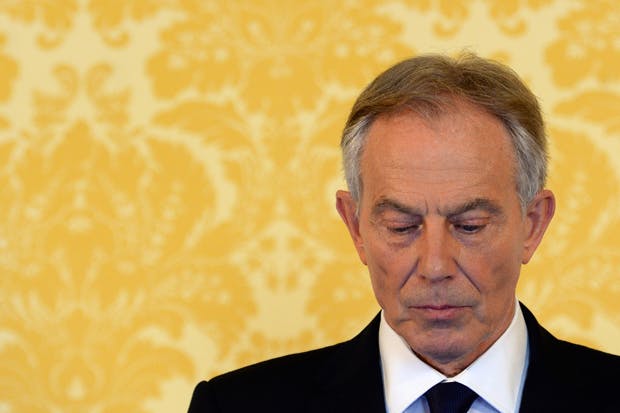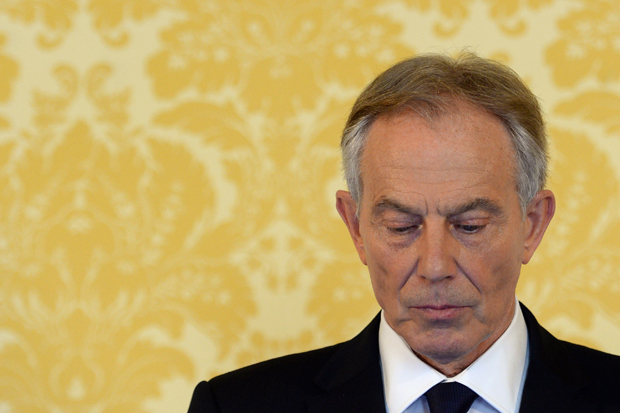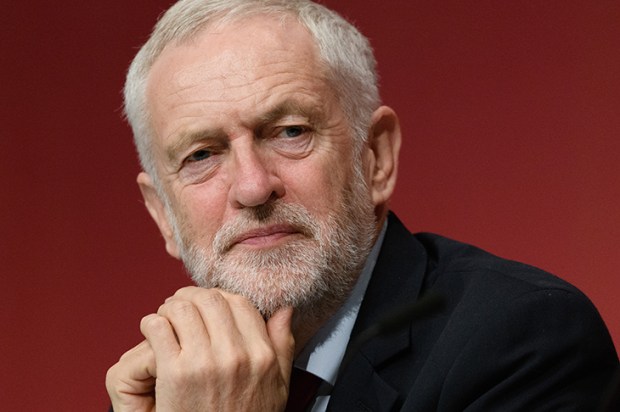As a founder member of the Guild of Blair-Bashers, someone who reacted strongly against him from our first encounter at dinner when he was only an opposition spokesman, as a commentator who railed against the invasion of Iraq the moment the idea was mooted and right through to the end, and as a journalist who throughout Tony Blair’s time at No. 10 beat my tiny fists against the imposter I always thought him to be, perhaps I may deserve your attention now, after Chilcot, that I have something to say in Mr Blair’s defence?
I don’t believe that in any important way the former Prime Minister lied. And I don’t agree there would have been anything wrong with his giving secret undertakings to the President of the United States.
These seem to me to be the two significant moral charges Blair’s foes and critics have been making. They relate to personal probity. The rest — and the Chilcot Report expends millions of words on this — are about personal and collective competence.
Doubtless Blair and everyone around him were incompetent. Doubtless they took on trust what they should have rigorously tested. Doubtless they shamelessly overegged the case to get support for what they believed to be necessary. Doubtless they never planned properly for the aftermath of the invasion, and doubtless the plans they did make were flawed. The whole fiasco was marked by blunder, delusion and miscalculation.
One must, however, observe that these indictments would not distinguish this fiasco from scores of other British military and foreign–policy fiascos over the centuries — nor from a fair few British military and foreign policy successes. Imagine what the Franks report into events leading up to the Falklands War (carefully critical though it was) would have said if the invasion had failed. Conspicuous success drowns out voices critical of the myriad failures which, in the event, did not prevent victory. Conspicuous failure amplifies them. Much of Chilcot’s finger–pointing seems to me to be at the kind of ill-informed, careless, wing-and-a-prayer, face-that-one-when-we-come-to-it stuff that characterises the politics of war in every era. We could investigate Libya next, and pull Cameron and his crew to pieces too.
But what has given a bitter edge to criticism of Blair’s big war and its aftermath has been the attack on his honour. The public and its news media always enjoy this, with its soap-opera quality, permitting the expression of opinion in the absence of data. We opine (or some do) that Blair lied about weapons of mass destruction, and made a secret pact.
The first question has already been much-churned. Never mind the paucity of evidence for WMD, never mind the ex-post-facto judgments about the unwisdom: do you really suppose that if Blair had known there was no serious weapons programme, or even thought there was a significant chance that none would be uncovered, he would have attached his reputation to the confident claims he made? Of course not. His behaviour was that of a man who had persuaded himself utterly that he would be proved right.
He certainly persuaded me, though I still thought it best to wait. Tony Blair has always insisted he believed his case. We should take his word for it. Chilcot seems to have.
How, though, about the ‘secret deal’ with George W. Bush? ‘I will be with you, whatever’. After the word ‘whatever’, the message continued with ‘but’. With a good deal of Jesuitry it’s possible to construe from what follows the ‘but’ that the message did not amount to a come-what-may; but few will read it as anything less.
What appears to me to have been under-discussed is the public and media assumption that if Mr Blair did secretly pledge unconditional support to the US President — support he dared not make public because he was acting as though British support depended on Bush’s taking the UN route to war — then that would have been an unconscionable way for a prime minister to behave.
Would it? Are we then saying that two world leaders should never establish the kind of personal trust that lets one offer private undertakings to another? For make no mistake, there are circumstances in which the alternative to making a private undertaking is not to make a public one: the alternative is for there to be no private understandings, no taking by one into another’s confidence, no reliable undertakings at all.
Unable, in the immediate, to gain parliamentary approval, Disraeli privately pledged the British government to the purchase of the Suez Canal. He pulled it off — much to his country’s advantage.
The peace process in Northern Ireland relied heavily on personal relationships and on Major’s and Blair’s winning a measure of both the unionists’ and the republicans’ private trust; and let’s not forget how important the relationship between Blair and Clinton was here — the latter telephoning key players and (essentially) reading a script drafted by Blair. Or how important Thatcher’s and Reagan’s personal relationship was in the ending of the Cold War. In both cases, premature openness would have wrecked preliminary discussions. ‘Kissinger in China’, one of the most important secret diplomatic démarches of the 20th century, would have been impossible in the glare of publicity.
And think about the years of diplomacy that now lie ahead for Theresa May, as she negotiates (and, perhaps more importantly, pre-negotiates) with our European allies. Are we really saying it would be a bad thing if she and Angela Merkel were to establish a personal rapport that allowed both statesmen to apprise each other privately of red lines in their negotiating positions?
In its heady rush for ‘transparency’, our age is in danger of overlooking the usefulness of private promises, private assurances and (sometimes) private ‘I’m not bluffing’ threats. The alternative to secrecy isn’t always openness: sometimes it is misunderstanding, confusion and flying blind.
Got something to add? Join the discussion and comment below.
Get 10 issues for just $10
Subscribe to The Spectator Australia today for the next 10 magazine issues, plus full online access, for just $10.















Comments
Don't miss out
Join the conversation with other Spectator Australia readers. Subscribe to leave a comment.
SUBSCRIBEAlready a subscriber? Log in